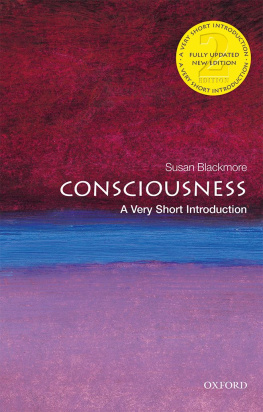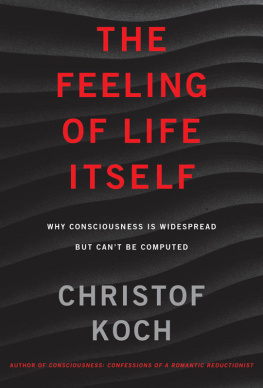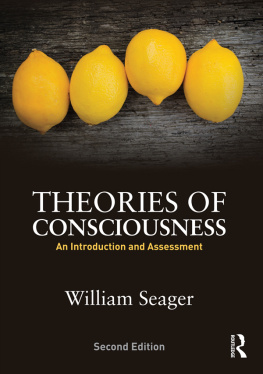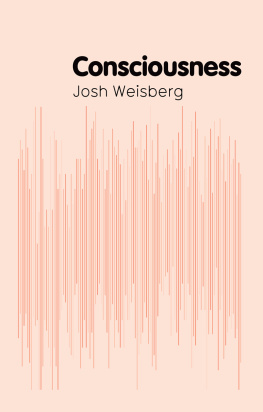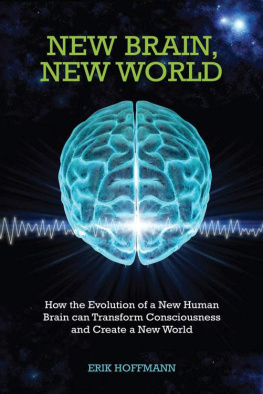
Bridges to Consciousness
This book investigates consciousness as an emergent state arising from the global functioning of the brain and the body. In this research Krieger applies these concepts to analytical psychology, particularly to the constellation of the complex and of the archetype. Global brain functioning is considered as a complex system whose macroscopic, emergent patterns such as thoughts and behaviours are determined by physical parameters including emotion, memory and perception.
The concept of the feeling-toned complex was among the first of the theories to be developed by Jung, and the theories of complexity and dynamical systems which subsequently developed in the physical sciences did not exist at the time. This book takes a new look at the feeling-toned complex as a basin of attraction which competes for consciousness against other complexes to determine behaviour. By drawing parallels between current ideas in neuroscience and Jungs more traditional theories, Krieger discusses the relevance for both psychotherapy and everyday life.
Bridges to Consciousness considers the importance of the link between emotion and the complex in both the establishment of consciousness and the determination of self-esteem, making the work relevant to therapists and analysts. This book will also awaken interest in complexes in both Jungian and wider neu-roscientific research communities and will therefore interest researchers and academics in the field of psychology who want an insight into how the ideas of Jung can be applied beyond the traditional analytic field.
Nancy M. Krieger has a PhD from the Centre for Psychoanalytic Studies, Essex University, UK. She graduated from the International School of Analytical Psychology in Zurich, Switzerland, where she is now a training analyst and teaches regularly. She has a private practice in France near Basel.
Research in Analytical Psychology and Jungian Studies Series
Series Advisor: Andrew Samuels, Professor of Analytical Psychology, Essex University, UK
The Research in Analytical Psychology and Jungian Studies series features scholarly works that are, broadly speaking, of an empirical nature. The series comprises research-focused volumes involving qualitative and quantitative research, historical/archival research, theoretical developments, heuristic research, grounded theory, narrative approaches, collaborative research, practitioner-led research, and self-study. The series also includes focused works by clinical practitioners, and provides new research informed explorations of the work of C.G. Jung that will appeal to researchers, academics, and scholars alike.
Books in this series:
Time and Timelessness
Temporality in the theory of Carl Jung
Angeliki Yiassemides
Apophatic Elements in the Theory and Practice of Psychoanalysis
Pseudo-Dionysius and C.G.Jung
David Henderson
C.G. Jung and Hans Urs von Balthasar
God and evil A critical comparison
Les Oglesby
Bridges to Consciousness
Complexes and complexity
Nancy M. Krieger
Bridges to Consciousness
Complexes and complexity
Nancy M. Krieger

First published 2014
by Routledge
27 Church Road, Hove, East Sussex BN3 2FA
and by Routledge
711 Third Avenue, New York, NY 10017
Routledge is an imprint of the Taylor & Francis Group, an informa business
2014 N. M. Krieger
The right of N. M. Krieger to be identified as author of this work has been asserted by her in accordance with sections 77 and 78 of the Copyright, Designs and Patents Act 1988.
All rights reserved. No part of this book may be reprinted or reproduced or utilised in any form or by any electronic, mechanical, or other means, now known or hereafter invented, including photocopying and recording, or in any information storage or retrieval system, without permission in writing from the publishers.
Trademark notice: Product or corporate names may be trademarks or registered trademarks, and are used only for identification and explanation without intent to infringe.
British Library Cataloguing in Publication Data
A catalogue record for this book is available from the British Library
Library of Congress Cataloging in Publication Data
Krieger, Nancy M.
Bridges to consciousness : complexes and complexity / Nancy M. Krieger.
pages cm
Includes bibliographical references.
ISBN 978-0-415-82875-8 (hardback) -- ISBN 978-0-203-58147-6 (ebook) 1.
Consciousness. 2. Jungian psychology. I. Title.
BF311.K6975 2013
153--dc23
2013024066
ISBN: 978-0-415-82875-8 (hbk)
ISBN: 978-0-203-58147-6 (ebk)
Typeset in Bembo
by GreenGate Publishing Services, Tonbridge, Kent
Contents
My first encounter with dynamical systems was as an undergraduate physics student in the late 1960s. The physics building at the University of Michigan at that time was a modern, rectangular eyesore amidst the otherwise beautiful gothic architecture of the campus, but its long, straight hallways were an excellent place to calibrate the then new lasers. It is the work of Herman Haken, who was then developing much of the mathematical explanation behind the working of lasers, which forms the theoretical basis for my investigation of the psyche as a dynamical system. For over 40 years since then I worked in IT. I spent many of the later years designing message flows in distributed systems, determining which system had what information at what time and how it could get to where it was needed using, for the most part, standardised messages.
In 1999 I started my training at the C.G. Jung Institute in Ksnacht. The research for this paper started with my diploma thesis (completed in 2006) for the newly founded International School of Analytic Psychology (ISAP) in Zurich. The principle orientation of that paper, The Experience of the Self in the Analytic Relationship, was clinical, although it did address the topic of the neurological underpinnings of consciousness. I made no specific reference to complexity theory at that time.
My interest in complexity theory developed quickly with my reading during the first months of research for my PhD, principally from my readings in consciousness studies around the theories of Bernard Baars and the Global Workspace (2005). By 2008, one and a half years into the thesis, the idea of including the complex as an attractor in a dynamical system had become a central element in my research. That Autumn I visited Dr Harald Atmanspacher at the Institut fr Grenzgebiete der Psychologie und Psychohygiene (IGPP) in Freiburg. Dr Atmanspacher works in theoretical neuroscience. His background in the physical sciences gives him a different perspective from others coming from a medical, psychological, or philosophical discipline. He encouraged me to orient my research to track the correlation between the micro- and macro-levels of the emerging brain-psyche system.
After working on this for a while I realised that I needed to investigate in depth the ego-complex, its formation and the role it plays within the normal functioning of the psyche.
At this point the structure and content of the thesis was fixed. Although the range of topics covered is unusually broad, this thesis begins with a single premise: that a feeling-toned complex, as defined by Jung, is an attractor in a dynamical system. It attempts to substantiate this (although physical proof is beyond the practical limits of this research) and then investigates the resulting implications for the major concepts of Analytical Psychology.
Next page





